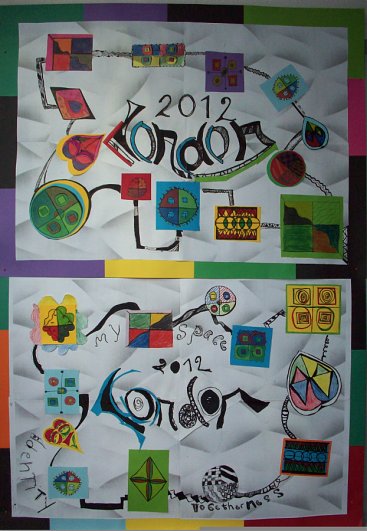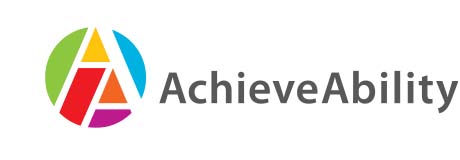AchieveAbility is user led
The context of dyslexic living within society
Senior Policy Advisor: Department for Business Innovation and Skills (BIS)
Tony Howells
Are we creating the environment for dyslexic people to succeed through education?
Does our culture not recognise those with learning differences equally as those with physical disabilities? And why do we treat those with dyslexia as though they have an illness by needing a diagnosis before we are prepared to provide any support ?
Is the equalities act providing the platform for those with learning difficulties to get the support they require? And is there any evidence that the equalities act works for those with learning differences?
Are organisations translating the equalities act into policies and processes that allow those with learning difficulties to access the support they require in a timely manner? And where is the good practice and how can we share it to help other organisations improve their practices, processes and policies?
Should we be looking at learning in a more holistic way, taking into account, the environment, learning styles, learning processes, testing and measurement, stress and medication?
Should teachers have compulsory models with practical experience of children with learning difficulties as part of teacher training?
Should teachers have specific Induction training for each child in their care with special learning differences with the aim of developing and individual learning plan for each child?
Are current assessment processes for dyslexic learners fit for purpose, do they provide the environment and process to succeed? Should exams and tests be tailored not to disadvantage those with learning differences? And why we test those who learn in a different way in the same way as others?
Why do we not respect those with a difference and think it is OK to ignore the law by doing so?
Value is generated by confidence; confidence comes from the right support, supporting those with learning differences in a holistic way, maintaining the support through the learning process into working life! Why can't we support those with learning difference consistently through life?
Should we be seeking to find ambassadors for our learning difference to promote their success?
Senior Policy Advisor: Department for Business Innovation and Skills (BIS)
Tony Howells
Are we creating the environment for dyslexic people to succeed through education?
Does our culture not recognise those with learning differences equally as those with physical disabilities? And why do we treat those with dyslexia as though they have an illness by needing a diagnosis before we are prepared to provide any support ?
Is the equalities act providing the platform for those with learning difficulties to get the support they require? And is there any evidence that the equalities act works for those with learning differences?
Are organisations translating the equalities act into policies and processes that allow those with learning difficulties to access the support they require in a timely manner? And where is the good practice and how can we share it to help other organisations improve their practices, processes and policies?
Should we be looking at learning in a more holistic way, taking into account, the environment, learning styles, learning processes, testing and measurement, stress and medication?
Should teachers have compulsory models with practical experience of children with learning difficulties as part of teacher training?
Should teachers have specific Induction training for each child in their care with special learning differences with the aim of developing and individual learning plan for each child?
Are current assessment processes for dyslexic learners fit for purpose, do they provide the environment and process to succeed? Should exams and tests be tailored not to disadvantage those with learning differences? And why we test those who learn in a different way in the same way as others?
Why do we not respect those with a difference and think it is OK to ignore the law by doing so?
Value is generated by confidence; confidence comes from the right support, supporting those with learning differences in a holistic way, maintaining the support through the learning process into working life! Why can't we support those with learning difference consistently through life?
Should we be seeking to find ambassadors for our learning difference to promote their success?
AchieveAbility was originally set up by Dyslexic people for Dyslexic people
Founded in 2004 at a university by staff with experience of education, training and employment as dyslexic people. AchieveAbility work is therefore delivered by people who have an understanding of dyslexia.
AchieveAbility is now a user led Charity which maintains this understanding of dyslexia as integral to the values of the organisation.
AchieveAbility Distinctiveness:
AchieveAbility is a Charity established by a group of people with dyslexia which works to change the environment, social, attitudinal and physical - so that individuals with dyslexia can demonstrate their knowledge, skills and qualities to the best of their ability, especially in contexts of education and training.
Whilst it recognises the importance of research on the causes of dyslexia, it considers that a more helpful and effective strategy is to make adaptations to the world around. In doing so, it seeks to move away from an individual/medical/deficit model towards a more social/educational/political one. Ideally, this involves anticipating the needs of those with dyslexia and taking steps to ensure that their needs can be met efficiently and effectively in standard routine policies, practices and procedures without any subsequent reasonable adjustments.
To illustrate the AchieveAbility approach, it might be helpful to consider the situation of people who are left-handed. In former times, efforts would have been made to push them into using their right hand. Today, left-handedness is taken for granted and the left-handed person's participation in society is facilitated by the development of equipment etc. more suited to their needs. Change the world rather than the person with dyslexia.
.
Founded in 2004 at a university by staff with experience of education, training and employment as dyslexic people. AchieveAbility work is therefore delivered by people who have an understanding of dyslexia.
AchieveAbility is now a user led Charity which maintains this understanding of dyslexia as integral to the values of the organisation.
AchieveAbility Distinctiveness:
AchieveAbility is a Charity established by a group of people with dyslexia which works to change the environment, social, attitudinal and physical - so that individuals with dyslexia can demonstrate their knowledge, skills and qualities to the best of their ability, especially in contexts of education and training.
Whilst it recognises the importance of research on the causes of dyslexia, it considers that a more helpful and effective strategy is to make adaptations to the world around. In doing so, it seeks to move away from an individual/medical/deficit model towards a more social/educational/political one. Ideally, this involves anticipating the needs of those with dyslexia and taking steps to ensure that their needs can be met efficiently and effectively in standard routine policies, practices and procedures without any subsequent reasonable adjustments.
To illustrate the AchieveAbility approach, it might be helpful to consider the situation of people who are left-handed. In former times, efforts would have been made to push them into using their right hand. Today, left-handedness is taken for granted and the left-handed person's participation in society is facilitated by the development of equipment etc. more suited to their needs. Change the world rather than the person with dyslexia.
.

Workshops delivered by Dyslexic people for Dyslexic young people in London Schools
